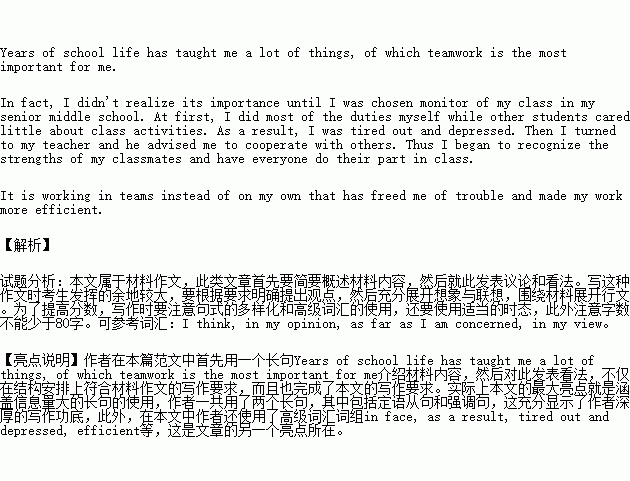题目内容
请根据以下提示,结合你校园生活中的一个事例,就与人合作这一话题,用英语写一篇短文。
Working in groups at school is an opportunity to learn more about teamwork. Teamwork shows us how other people's roles fit the purpose of the group, and it teaches us to be patient and how to respond to different people.
注意:①无须写标题,不得照抄英语提示语;
②除诗歌外,文体不限;
③内容必须结合校园生活中的一个事例;
④文中不得透露个人姓名和学校名称;
⑤词数为100左右。
练习册系列答案
相关题目

